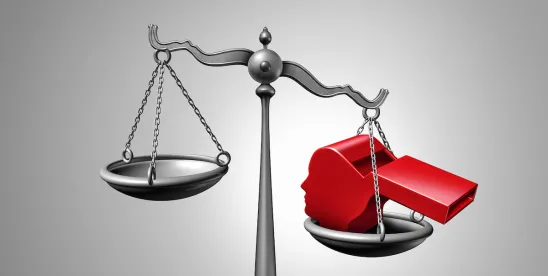Are you ready to uncover the secrets behind customs fraud and learn how whistleblowing can make a difference? In this video, we explore the complex world of customs fraud, the importance of whistleblowing, and how you can earn rewards by taking action.
Watch the video or read the blog below.
Customs Fraud Whistleblowing: Combat Evasion & Earn Rewards
Speaker: Tycko & Zavareei LLP Partner Jonathan Tycko
Introduction to the False Claims Act
This statute makes it illegal to commit fraud against the government, covering false claims where fraudulent requests for government payment are made, as well as reverse false claims where payments owed to the government are deceptively avoided.
Common Types of Customs Evasion
Examples include misclassification or other lies about the products being imported, transshippment or other attempts to mask true country-of-origin, and double-invoicing schemes intended to mislead CBP about the value of the imported products. These types of fraud are commonly used to avoid payment of duties owed under Anti-Dumping and Countervailing Duty (AD/CVD) orders, Section 301 tariffs, as well as normal duties.
Qui Tam Actions
These actions allow private individuals (relators) to bring cases on behalf of the government and earn substantial monetary rewards. The presentation detailed the process of filing a qui tam case, the role of the Department of Justice, and the investigation process.
Anti-Retaliation Provisions
Affirmative protections for insider whistleblowers exist under the FCA. If the company engages in some kind of workplace-related retaliation, such as firing, demoting, isolating, or not giving the whistleblower changes for advancement, then the whistleblower would have a claim for their own personal damages for that workplace retaliation. These are known as “Section H” claims under the False Claims Act.
EAPA and E-allegation Claims As Alternatives To The False Claims Act
The Enforce and Protect Act (EAPA), and CBP’s E-allegation process, provides additional avenues for reporting customs fraud, and the pros and cons of these alternatives were examined.
Monetary Rewards and Statistics
The presentation highlighted the substantial financial rewards for relators, with examples and statistics showing significant recoveries and rewards in customs qui tam cases.
This LinkedIn Live session aimed to provide a comprehensive understanding of the FCA, the mechanisms for reporting customs fraud, and the incentives for whistleblowers, concluding with a Q&A segment to address audience questions.
Questions & Answers
Can you bring a qui tam case under the False Claims Act if you are not in the United States?
Yes, a relator in a qui tam case under the U.S. customs system does not need to be a U.S. citizen, resident, or physically located in the U.S. Anyone with information about fraud, including someone in a foreign country working for a foreign manufacturer exporting to the U.S., can be a relator and earn a reward under the statute.
How long do qui tam cases normally take before you earn the reward?
The average seal time for government investigations in qui tam cases is about 18 months, but this includes quickly resolved cases deemed meritless. Successful cases typically take longer, averaging around two-and-a-half to three years from filing to resolution. If the government declines to intervene, the timeline extends further for litigation. Filing such a case requires patience, as a successful resolution can take multiple years. Despite efforts to expedite the process, the pace largely depends on the government’s actions, which are typically slow.
How do you find a lawyer to represent you in one of these cases?
It’s important to find a lawyer whose practice focuses on representing relators in qui tam cases under the False Claims Act. This type of litigation is distinct from other civil cases, involving unique procedures like the seal period and extensive interaction with Department of Justice lawyers and other government investigators. Experience in this niche field is crucial, as it involves understanding how to navigate the system and expedite cases towards a successful conclusion.
Who can be a defendant in a qui tam case?
In a qui tam case involving customs fraud, the primary defendant is typically the importer of record, the U.S. company responsible for paying customs duties. However, liability under the False Claims Act also extends to entities that cause violations. This means, for example, that an overseas company could be liable if it provides false information about the origin of its products. Additionally, downstream customers, like a U.S. retailer involved in a scheme to evade customs duties, could also be liable.
Individuals, such as the owners of the importer of record, might face liability if they were directly involved in the fraud. Therefore, multiple defendants can be named in a qui tam case, including the importer of record, overseas companies, and individuals directly involved in the fraud. Determining the appropriate defendants is a key task for lawyers and their clients when bringing a case.
The False Claims Act is a powerful tool that allows private citizens to root out fraud and hold wrongdoers accountable. As duties and tariffs become an increasingly important tool in international relations, and a larger and larger source of revenue for the government, the role of customs fraud whistleblowers has increased in importance.




 />i
/>i

